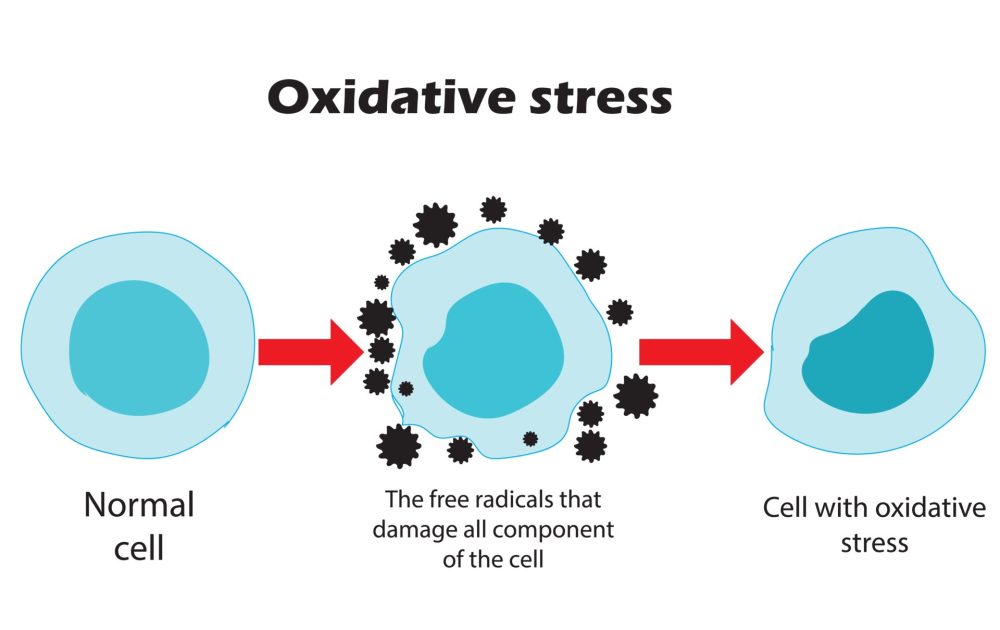Our test tells you which everyday chemicals you've recently come into contact with, and easy steps you can follow to reduce your exposure to them.
Glyphosate exposure raises oxidative stress levels

Oxidative stress is one of the indicators of carcinogens in the body that can lead to the development of cancer.
Animal and in vitro studies have established a connection between exposure to glyphosate and raised oxidative stress, although evidence of the same relationship in humans has been scarce until now. A new study has investigated the association between oxidative stress levels and exposure to glyphosate in a population of 268 farmers.
Glyphosate is the world’s most widely used herbicide used to control weeds and increase yields.
Raised glyphosate levels have been positively associated with raised levels of oxidative stress markers, detected by measuring biomarkers excreted in urine. Levels were most acute when exposure had been within the past 7 days suggesting that regular exposure to glyphosate is the most concerning. The results were compared to levels of glyphosate in a control group of non-farming males.
This study adds weight to thinking about the harmful health effects of exposure to glyphosate and its role in the development of cancer in humans. The International Agency for Research on Cancer (IARC) classes glyphosate as “probably carcinogenic”.
What is oxidative stress?
Oxidative stress occurs when there are disturbances in the natural balance between the production of free radicals and antioxidant responses in the body. If free radicals build up the body comes under oxidative stress which can cause cell damage and lead to illnesses, including cancer and neurodegenerative disorders such as dementia.
Oxidative stress can be detected by measuring biomarkers in urine.
What causes oxidative stress – the role of free radicals
Oxygen in the body can be split into single atoms that can unpair from electrons, which like to be paired. Once split, these single atoms search for other electrons to pair with; this is why they are called free radicals.
The problem with free radicals is that they can cause damage to cells and DNA whilst they move around the body in their pairing search. Free radicals occur naturally in the body as a biproduct of metabolism and are usually removed by the body with the help of antioxidants.
The body creates free radicals in response to environmental exposures such as air pollution, tobacco, and other environmental pollutants such as herbicides and pesticides. Free radicals can enter the body in substances we eat, drink, and breathe in. Food can become contaminated by free radicals, especially foods grown conventionally with the use of pesticides and herbicides. This can lead to the development of oxidative stress in the body.
Antioxidants help to neutralise free radicals by sharing an electron. Eating a balanced diet rich in antioxidants and vitamins is a valuable source of antioxidants.
Read our guide to Glyphosate
Information on this site should never be used as a substitute for medical advice from your doctor or other qualified clinician. If you have any concerns about your health always seek medical advice.